
In dim basements, among cigarettes, whiskey, and drawn guns, a Jewish fighting spirit was beating. The year was 1948, and the Jewish settlement in Zion was under a choking arms embargo. Jewish-American gangsters, legends of organized crime, found themselves answering the call of blood in the Land of Israel, and they did everything to help. This was their finest hour, when 'hand meets sister hand' at the most critical moment for the emerging state.
Secret Meeting in New York - The Founders' Meeting
On a particularly hot July day in 1945, in a luxurious apartment on 57th Street in Manhattan, 19 people gathered who would change history. David Ben-Gurion, then a relatively unknown Zionist leader in the United States, presented his vision.
"We need not just dreams," he told them, "but weapons - and lots of them." When one attendee cautiously asked, "What if we fail?" Ben-Gurion responded without hesitation, "If we fail, at least we'll know we tried."

Rudolf Sonneborn: The Smuggling Architect
That foundational and secret meeting took place in Rudolf Sonneborn's apartment. Sonneborn, a successful American businessman and industrialist, became one of the central figures in arms smuggling efforts for the Jewish settlement before the state's establishment. He used his business skills, network of connections, and private capital to overcome international restrictions. At that historic meeting with Ben-Gurion, Sonneborn set the direction for action.
Meyer Lansky & Co. - "These Are My People"
New York Harbor, 1948. A bustling city. Giant ships dock at piers while sweating stevedores load and unload cargo from around the world. One of the ships was meant to bring lethal cargo to the Middle East - weapons for Arab armies preparing for war against the emerging Jewish state. Suddenly, as if by chance, things began to "go wrong" at the dock. Heavy crates "accidentally fell" from giant cranes into the cold sea waters and sank to the depths. Entire weapons shipments were "mistakenly loaded" onto ships sailing to distant destinations far from the Middle East battlefields.

Meyer Lansky, one of the most prominent figures in U.S. organized crime history, was known as "the Mob's Accountant." His life is interwoven with stories of power, daring, and cunning, but there's a less known chapter in his story – his involvement in the Zionist struggle for Israeli statehood.
Lansky, born to a poor Jewish family in Grodno, Belarus, immigrated to the United States at a young age. In New York's tough neighborhoods, he developed exceptional resourcefulness and quickly established himself as an organized crime leader. Despite his questionable activities, Lansky never forgot his Jewish roots. He saw the establishment of a Jewish state not only as a moral duty but also as historical revenge for the European pogroms and the Holocaust. From the shadows, Lansky activated his connections with the Italian Mafia, whose long arm controlled the stevedores' union at the port.

One of Lansky's main contributions to the Zionist effort was his control over major U.S. ports. Workers and customs officials who feared Lansky's reputation helped ensure critical shipments reached their destination safely. Lansky convinced authorities to turn a blind eye to suspicious cargo. When customs officials tried to delay ammunition shipments, Lansky ensured the "right documents" mysteriously appeared on their desks.
Lansky's final word in the ports came through his connections with another notorious gangster, Albert Anastasia, a violent and ruthless gangster who took control of the International Longshoremen's Association (ILA) in the late 1920s through forceful methods and threats. His new position gave him control over six local unions in Brooklyn, allowing him to manage cargo movement in New York's port.
In one case, a large weapons shipment faced exposure when a local worker noticed something unusual in the crates. Lansky, learning of this at the last moment, sent a skilled team to "handle the situation." The worker was invited for a "friendly chat," and afterward, the reporting issue mysteriously disappeared. The shipment departed, and Israel received the weapons it desperately needed.

Operation Cornflakes
Beyond the colorful figures from organized crime who aided the Zionist struggle, many other Jews worked tirelessly, using any means necessary to fulfill their dream and secure their people's future. One fascinating figure, still considered a procurement legend today, was Eli Shalit - at the time, just 22 years old. Shalit, grandson of a famous Jerusalem doctor and nephew of Baron Rothschild's colony manager, combined an impressive appearance with rare skills. The biggest challenge came with Operation "Cornflakes." Shalit took on a highly dangerous mission: smuggling five and a half tons of gunpowder from Mexico to Israel, under the nose of strict international supervision. The powder was purchased from a Mexican factory in a deal involving some bribery and many nodding heads of agreement.
The operation was planned meticulously and in complete secrecy. Shalit, who studied agriculture and economics at Louisiana State, decided to make useful use of his acquired knowledge. Tons of gunpowder were disguised as fertilizer powder and transported in military trucks to a factory in Mexico City's suburbs. From there, the cargo continued to an isolated farm owned by a Jewish supporter before beginning its long and dangerous journey to Israel. "Cornflakes" was the whimsical codename that served as cover for yet another bold operation to help Israel.
Uncle Sam
The smuggling network included figures from completely different worlds who agreed to set aside differences in class, ideology, and law (especially the latter). A notable case was the collaboration with the Jewish Mafia. Lansky, along with figures like Bugsy Siegel and Morris "Moke" Goldstein, turned the underworld into a front in the war for Israel. Mafia members helped transport cargo from unsecured ports, prevented interference from law enforcement, and kept the smuggling network under the radar. Sometimes they used bribes, sometimes threats, but were always focused on one goal – supplying weapons to the Jewish underground in Palestine.
Bugsy Siegel, known primarily for his role in turning Las Vegas into the world's gambling capital, was also an enthusiastic contributor to Jewish causes. Siegel saw the Zionist struggle as an opportunity to do something truly significant, something that would outlast him. Siegel even organized a secret meeting in Los Angeles with Jewish businessmen and other gangsters to raise donations for weapons smuggling. "We can't stand by while they're fighting for their lives," he said. Within hours, he raised tens of thousands of dollars for weapons procurement for Israel. Siegel also volunteered to use his connections to transfer shipments of rifles through Mexico, from where they were sent to Palestine. "When Israel is established," he said at one meeting, "I want to know that I had a part in it."
Morris "Moke" Goldstein wasn't as famous as Lansky or Siegel, but his contribution to the Zionist struggle was critical. Goldstein, known for his skill in disappearing and evading law enforcement, became an expert in disguising weapons shipments as civilian equipment. In one operation, he loaded dozens of rifles into sewing machine crates. When port inspectors began asking questions, Goldstein hired a group of actors who pretended to be sewing factory workers. They presented forged documents and claimed they were exporting equipment to a "new factory in South America." The shipment passed successfully, and Goldstein told his friends: "If I could act in theater like I acted here, maybe I'd be a movie star."

Business as Usual
In sun-drenched Miami, far from Palestine's battlefields, Reuven Dafni - a brave emissary from the Haganah - was searching for a very specific address. Dafni found himself in the office of Sam Kay, a powerful Jewish gangster with dubious but influential connections. Dafni, desperate and out of options, opened his heart to Kay and revealed the plight of the pioneers and the urgent need for weapons to defend the Jewish settlement in Palestine.
Kay, without hesitation, reached out to Dafni and offered a bold solution: to leverage his connections with Panama's president for the cause. Kay promised to use his influence to register Haganah's weapons ships under the Panamanian flag, allowing them to evade British eyes and safely reach Palestine's shores. And so, under a foreign flag, the ships docked in the country's ports and unloaded their cargo without fear.
"I'm With You"
Years later, Dafni recounted that he was sent to Los Angeles to raise funds and weapons for the Haganah. He was invited to meet with Siegel through his right-hand man, Allen Smiley. The meeting took place at "La Rue" restaurant. At the start of the meeting, two thugs entered to check the room, and after confirming it was secure, Siegel himself entered.
During the conversation, when Siegel heard that the Haganah needed support to fight, he asked excitedly: "You mean to tell me Jews are fighting?" When Reuven answered affirmatively, Siegel continued: "You mean to fight, like to kill?" And when he received another positive answer, Bugsy declared: "I'm with you."
Epilogue
Ezer Weizman, one of Israel's presidents, was known for his way with words. In one of his famous responses to a journalist's question about the existence of organized crime in Israel, Weizman noted that "the only thing organized here is crime." This statement provokes thought when looking at those conspiracy-plotting lawbreakers – murderers, thieves, and sometimes both – who crossed the dividing line for a brief period to use their powers for good.
Kikar HaShabbat contributed to this article.



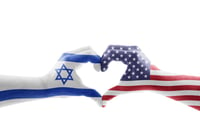
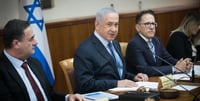

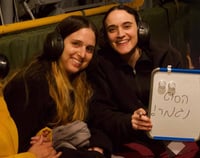
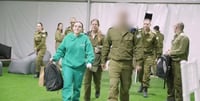
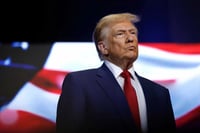
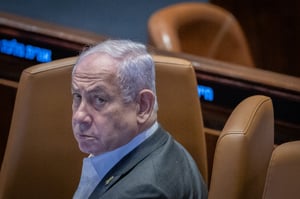
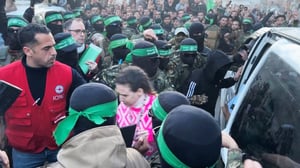
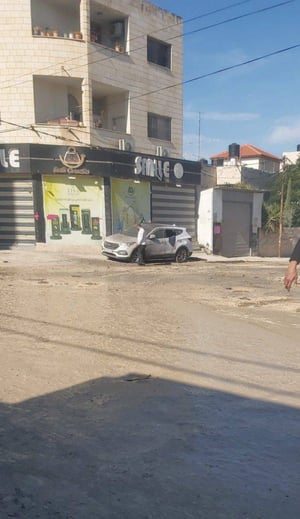


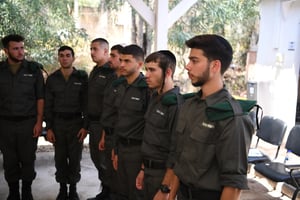
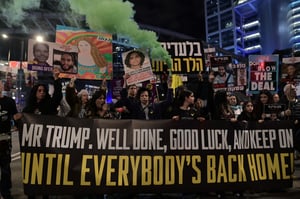


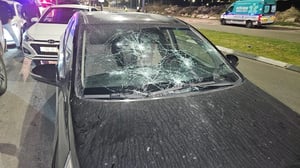
0 Comments